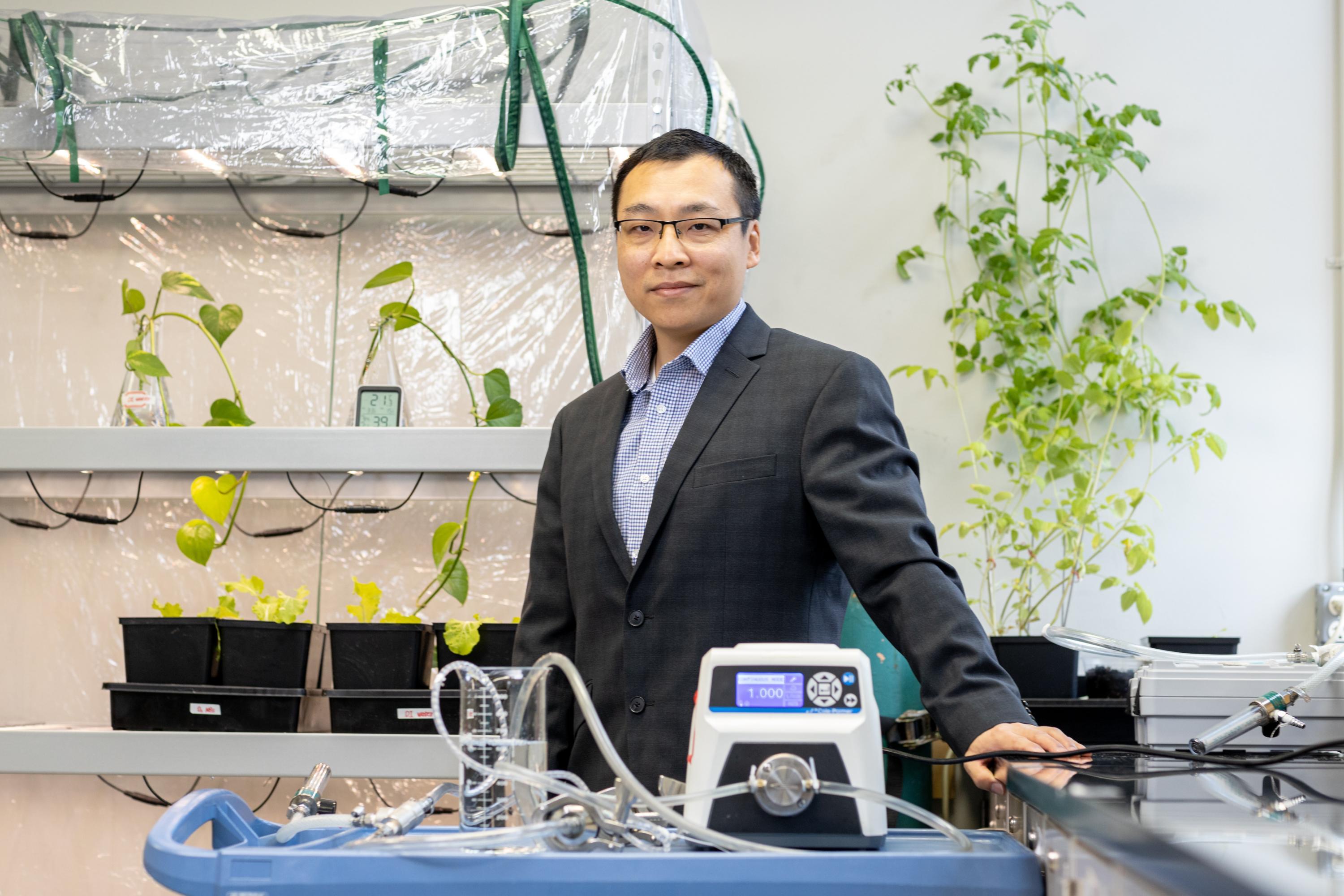Urban Gardens Workshop at NJIT Advances Sustainability and Food Security

NJIT hosted a National Science Foundation-funded Research Coordination Network (RCN) workshop on Urban Food, Energy, and Water (Urban FEW) in November. The event brought together researchers, technologists, urban gardeners and policymakers to tackle urban challenges related to food, water and energy security. Organized by NJIT’s Roberto Rojas-Cessa and New York Institute of Technology’s Ziqian Dong (also an NJIT alum), the workshop aimed to foster connections between academia and community stakeholders in Newark and beyond.
Highlights of the Workshop
Speakers and participants represented governance, academia, and community leadership, offering diverse perspectives on the value of urban gardens. Nicole Hewitt-Cabral, Newark’s chief sustainability officer, emphasized the city’s commitment to sustainable practices, while Helen Gu ’99, associate dean for Research at NYIT, highlighted academic contributions to urban food systems. Other participants, like Humberto Baquerizo ’96 from Rutgers New Jersey Medical School, underscored the role of urban agriculture in promoting community well-being.
The workshop opened with Dr. Chip Small from the University of St. Thomas, who detailed the ecological services of urban gardens, such as cooling urban areas, retaining stormwater, recycling nutrients, and creating pollinator habitats. Raymond Figueroa of the NYC Community Garden Coalition traced the sociopolitical roots of urban gardens in the context of urban renewal. Carlos Martinez, director of NYC Parks GreenThumb, discussed managing the nation’s largest community gardening program, while NJIT’s Wen Zhang presented groundbreaking applications of nanobubble technology for sustainable agriculture.

Boundary Spanning and Collaborative Solutions
A hallmark of the event was its focus on collaboration. Petia Morozov of NJIT’s Hillier College Newark Design Collaborative worked with local organizations to include Newark-based urban gardeners like Charmaine LaFortune of Giving One Tenth and Marcellis Counts of Apiary in the Sky. These community voices highlighted grassroots efforts to enhance food security and environmental resilience.
Experts also shared innovative approaches to integrating advanced technology into urban gardening. A panel moderated by Ce Yang from the University of Minnesota explored sensor applications in garden operations, featuring speakers such as Peter Marchetto from Conservify and NJIT civil and environmental engineering assistant professor William Pennock. Discussions covered topics like water treatment, environmental monitoring for things like PFAS “forever chemicals” in water and data-driven strategies for improving garden productivity.
The History and Future of Urban Gardens
Urban gardening has a long history in the United States, beginning with “liberty gardens” during World War I and “victory gardens” in World War II to address food shortages. Post-war, urban gardens became symbols of community resistance to urban renewal projects that displaced neighborhoods. Today, these spaces are seen as crucial for environmental and social resilience, particularly in overburdened urban areas.
Speakers like Nevin Cohen of CUNY’s Public Health and Urban Food Policy Institute noted that while urban gardens offer numerous benefits, their expansion requires addressing inequities in access to resources and power. Effective governance must connect various entities, such as those managing stormwater, sustainability, and land use, to support comprehensive urban agriculture policies.
Outcomes and Next Steps
The workshop exemplified how interdisciplinary efforts can drive sustainable urban development. Gareth Russell of NJIT’s Urban Ecology Lab shared ongoing research involving faculty and students, while Carrie Martin from the Center for Community Systems outlined technical assistance programs for environmental justice communities. Emerging collaborations from the workshop are already developing funding opportunities and actionable strategies to enhance food security in urban settings.
To maintain momentum, the RCN plans additional workshops focused on specific technologies and policy interventions. An upcoming session led by Wen Zhang will delve into nanobubble technology applications, further bridging the gap between research and practice.

Join the Conversation
The Urban FEW network includes members from institutions such as New York University, Arizona State University and the National Renewable Energy Laboratory, among others. For information on future events or to connect with this growing community, contact Amy Stinchcombe of NJIT’s Hillier College of Architecture and Design or Roberto Rojas-Cessa at the Center for Energy Efficiency, Resilience and Innovation.